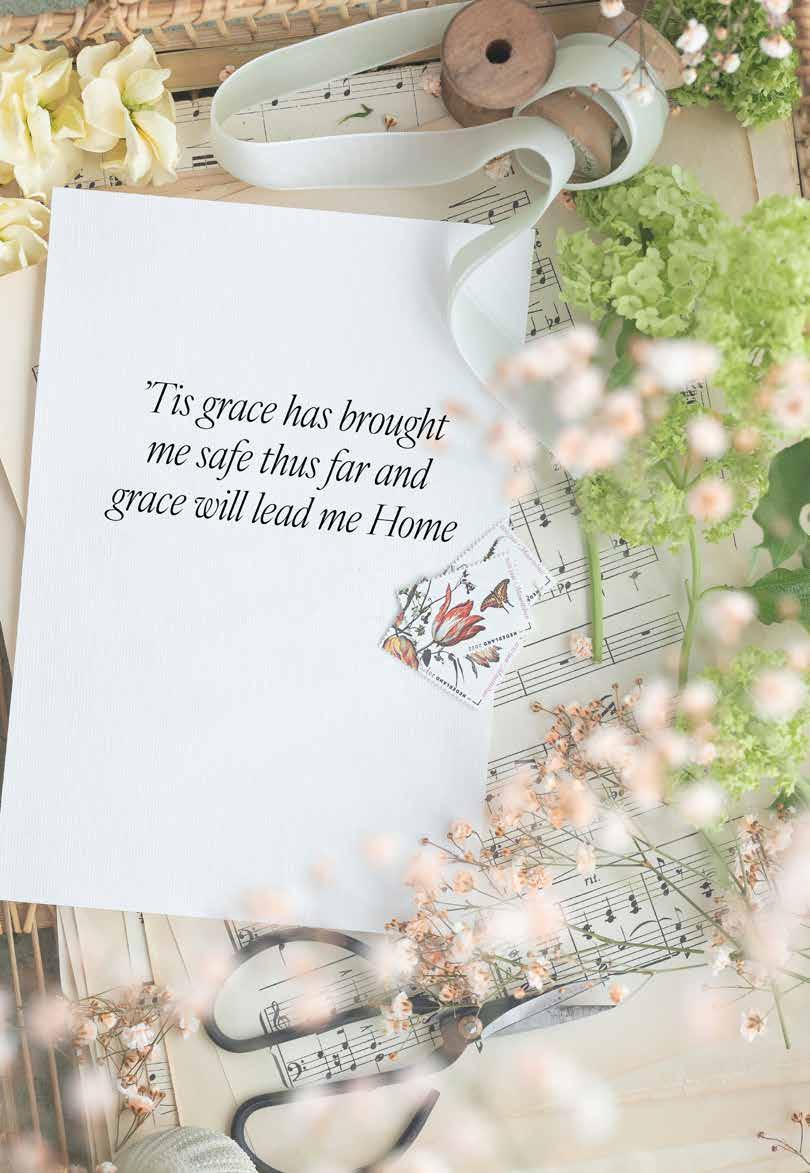
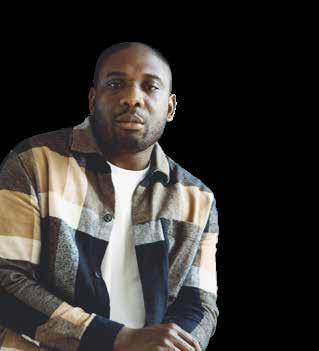
‘I want to help young people talk about race’



‘I want to help young people talk about race’
The Salvation Army is a Christian church and registered charity seeking to share the good news of Jesus and nurture committed followers of him. We also serve people without discrimination, care for creation and seek justice and reconciliation. We offer practical support and services in more than 700 centres throughout the UK. Go to salvationarmy.org.uk/find-a-church to find your nearest centre.
The Salvation Army first published a newspaper called the War Cry in London in December 1879, and we have continued to appear every week since then. Our name refers to our battle for people’s hearts and souls as we promote the positive impact of the Christian faith and The Salvation Army’s fight for greater social justice.
Listening to an album can be ‘special’ and ‘magical’, says record label founder Iain McNay. Millions of people would agree – which is why radio shows, record shops and music-buyers will be taking note of National Album Day, which this year falls on Saturday 18 October.
Over the years, groups and solo artists from all kinds of genres have used albums to explore powerful human emotions, to celebrate the everyday details of life and, sometimes, to highlight social problems – including racism.
Back in 1968, the Beatles alluded to the civil rights movement’s struggle for freedom when they recorded ‘Blackbird’ for their self-titled double album. A year later, Sly and the Family Stone’s Stand! album included their hit ‘Everyday People’, in which the multiracial pioneers of funk advocated harmony between ‘different folks’ of various skin colours and backgrounds.
Decades on, however, the problem of racism is still lingering, which is why Ben Lindsay has written two books titled We Need to Talk about Race, one for adults and a newly published one for young people. He argues in an interview in this week’s issue of the War Cry that, in the changing political landscape, ‘some people have been even more emboldened to challenge the idea of diverse communities’.
Editor: Andrew Stone, Major
Deputy Editor: Philip Halcrow
Staff Writer: Emily Bright
Staff Writer: Claire Brine
Staff Writer: Ewan Hall
Editorial Assistant: Linda McTurk
Graphic Designer: Mark Knight
Graphic Designer: Natalie Adkins
Email: warcry@salvationarmy.org.uk
The Salvation Army United Kingdom and Ireland Territory
1 Champion Park London SE5 8FJ
Tel: 0845 634 0101
Subscriptions: 01933 445445 (option 1, option 1) or email: subscriptions@satcol.org
Founders: Catherine and William Booth
International leaders:
General Lyndon Buckingham and Commissioner Bronwyn Buckingham
Territorial leaders: Commissioners Jenine and Paul Main
Editor-in-Chief: Major Julian Watchorn


local Salvation Army centre
Through his books, Ben hopes to give people the confidence to have healthy discussions about race, so that they can work together to tackle issues of prejudice and injustice.
As a Christian, Ben also believes in a broader kind of diversity – that ‘all types of people from different backgrounds’ can be part of God’s work in making the world the kind of place it should be.
He points out how the Bible shows that Jesus engaged with people from varied economic backgrounds; that Christianity quickly spread beyond its Jewish setting; and that people began responding to the news of God’s love in ‘different parts of the world’.
The message is clear. God’s love is for us all. Makes no difference what group we’re in.

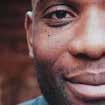
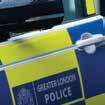


Feature by Philip Halcrow

‘The message behind National Album Day is simple,’ says Iain McNay, the founder of the Cherry Red Records label. ‘Sit down and play an album, new or old, and really, really listen. There can be so much there you have never heard before. It is like a discovery that can be so special and magical, and it might even change your life.’
There is not a single thing wrong with a good stand-alone track. But the organisers and supporters of National Album Day, which comes round today (Saturday 18 October), believe that the art form of the album – whether on vinyl, CD or another format – offers
demonstrate the diversity of sounds that are labelled ‘rock’.
What is more, the songs on these and countless other releases over the years underline the variety of moods and themes that rock albums can explore.
National Album Day supporter Ellie Rowsell of Wolf Alice says that, in making an album, ‘you get to create a little world, a piece of theatre, a snapshot of time, tell a story, spread a message or none of those things at all – there is no formula’. True. Albums build pictures of all kinds of human experiences, emotions and world views.
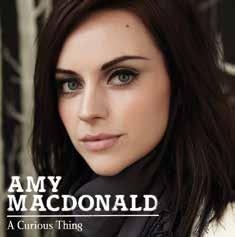
something distinctive.
‘The creativity, genius, commitment and passion that goes into making an album can be extraordinary,’ says Iain, ‘and is often forgotten in our increasingly track-driven culture that has emerged over the past years.’
National Album Day wants to promote the longer-player – and this year it is particularly shining a spotlight on the genre of rock.
On the day, Radio 2 and BBC Sounds will be highlighting the contribution that women have made to rock music, and Dermot O’Leary’s show will be celebrating the alternative rock bands who produced some of the most memorable albums of the 1990s, including Radiohead, Manic Street Preachers and Nirvana.
Not interested in ’90s alternative rock? Nevermind. Record shops across the country are offering a rackful of special releases (on various shades of vinyl). Collectively – with the list including Elvis Presley’s 1969 comeback From Elvis in Memphis, a 50th anniversary reissue of Queen’s A Night at the Opera, the folk-influenced A Curious Thing by singer-songwriter Amy Macdonald, and Blue by goth band the Mission – they
Whereas Queen’s A Night at the Opera offers the theatricality of ‘Bohemian Rhapsody’, the Good, the Bad & the Queen’s Merrie Land hints at the illusions and reality of life in England. And while David Bowie’s The Rise and Fall of Ziggy Stardust and the Spiders from Mars tells a story, Bob Dylan’s Saved comes with a message. Its track ‘Solid Rock’, for instance, is not about the music genre.
In singing about ‘hangin’ on to a solid rock’, Dylan is referencing faith. The song echoes a type of image stretching back to the Bible, in which a person can acknowledge: ‘My God is my rock, in whom I take refuge’ (Psalm 18:2 New International Version).
Repeatedly, the Bible’s writers describe how God provides a rocksolid love for humankind that will last for ever and a hope that does not crumble even when everything else seems broken.
Unnumbered people who have listened to that message have found it to be a discovery like no other – and one that has changed their lives.
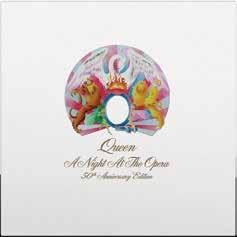
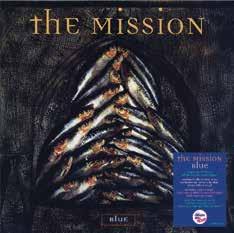
Special editions of titles by Amy
and
are among the releases marking National Album Day
‘A wave of “newstalgia” has fuelled a step up in growth of UK toy sales,’ reported The Guardian, explaining that parents are rebuying toys they once owned as children, such as Care Bears and Teenage Mutant Ninja Turtles.
Consumers are treating themselves to toys that ‘provide an emotional return and help with stress relief’, said Rory Partis, of the data company Circana. ‘The “newstalgia” trend enables adults to return to their childhood. They’re also enjoying sharing their toys and memories with their own children, giving rise to a new generation of fans.’
I haven’t yet bought my daughter any Sindy dolls (my preferred childhood toy), but I have been introducing her to some of the TV characters that I loved as a kid. Every day, we watch CITV’s Danger Mouse. Though it’s a remake of the original, I’m thrilled to see my little girl enjoying the show as much as I did.
As someone who loves a trip down memory lane, I can relate to people who find comfort in familiar things from their childhood. But I also recognise that the TV shows and toys of my youth have little impact on my life today. The adult in me has outgrown them.
But one thing which I learnt to value as a child – and which continues to enrich my life – is my relationship with God.
When I was young, I was taught that there was a God who loved me, who would forgive my mistakes and who would help me to live a good life. As I’ve grown, those foundational beliefs have been built upon. Through reading the Bible and prayer, I’ve learnt how to cling on to God’s love in tough times. I’ve understood that forgiveness can bring peace. I’m still learning about how to live a good life.
Though Bible stories provide a strong connection to cosy memories of the past, their power lies in the fact that they still inspire and challenge me today. And when I share these old, familiar stories with my daughter – who is hearing them for the first time – there’s comfort in knowing that she and I are discovering something new together.
The paranormal, violence and evil are among the topics that will be explored in Questions of Our Times, a series of conversations organised by the Christian Evidence Society and broadcast live on Premier Christian Radio. The theme of the latest series is Bringing Light into Darkness.
In the first programme, scheduled to be broadcast at 1pm on Tuesday 4 November, Major Nigel Bovey – former editor of the War Cry – will interview Matt Arnold, a Christian parapsychologist, about psychic phenomena, the paranormal and ghosts.
Future episodes will feature conversations with the Rev Dr Helen Paynter on the extent to which the Bible promotes violence; former BBC Reith lecturer Dr Gwen Adshead, a forensic psychiatrist and psychotherapist, on the existence of evil; and stem cell recipient Dr Claire Gilbert on living with cancer and what constitutes a ‘good death’.
The programmes will also be made available as video conversations on the christianevidence.org website.
A social media post featuring a quotation attributed to the late Billy Graham has gone viral.
In the Facebook post, Church of England priest Nicky Gumbel quoted the American evangelist as saying: ‘When wealth is lost, nothing is lost; when health is lost, something is lost; when character is lost, all is lost.’
The post has received more than 51,000 likes.

JOSEPH
ROCHE
recalls
the
‘whisper’ from God that prompted him to get clean from drugs – and explains why he’s now training to become a pastor
Interview by Claire Brine
‘Iwas with my friend in a crack den,’ says Joseph Roche. ‘Before long, trouble kicked off. In the process of trying to get my friend to safety, I received loads of blows, punches and kicks. My left hand was dislocated. When I fell, I Iost eight of my teeth.’
Despite the battering he took, Joseph made it back to the place where he was living at the time, The Salvation Army’s York House Lifehouse in Dublin. As someone experiencing homelessness, he’d moved into the centre in need of a bed. He had also hoped to find support in breaking his drug habit.
‘I got in at about 1.30am, went to my room and fell on my knees,’ Joseph recalls. ‘As I looked through the window at the night sky, I cried out: “God, if you’re up there – and you have to be up there –then I need help. I can’t do this any more. Please. Help me.”
‘I was so broken, begging and crying so much. I thought about all the times I’d
Turn to page 6 f
Joseph Roche helps to run the Joshua New Beginnings course, which teaches people about faith
tried to get help for my drug problem. Narcotics Anonymous meetings and counsellors. Rehabs. Even prison. I’d searched everywhere for help and nothing had worked. So when I collapsed to the ground, God was my last hope.’
As Joseph poured out his heart in a desperate prayer, God answered.
‘I’ll never forget it,’ he says. ‘I heard a whisper of conviction – a voice which said: “Just surrender everything.” At that stage, I knew nothing about faith, so I thought: “What’s going on? Did I just say that myself?” I went to bed and fell asleep.’
The next morning, Joseph woke up and prepared to head out to the pharmacy to pick up his prescription of methadone, the treatment to help reduce his withdrawal symptoms from harder drugs. But he was surprised when he realised that he didn’t want to take it. Later, when a friend offered him some crack cocaine, he turned it down.
Although Joseph had experienced a dramatic change, his body’s dependency on drugs didn’t disappear overnight.
‘I was feeling sick because physically I wanted the drugs,’ he says. ‘But
mentally, the urge had gone, I was like: Whoah!’
For the next five months, Joseph spent hours alone in his room at York House, praying and studying the Bible. He became a Christian and was baptised.
‘It’s still a shock to me to think about how my life has changed,’ he says. ‘I used to be such a horrible person to be around. But now my family can’t believe the change in me. I am 30 months clean. And that’s my longest-ever record.’
Joseph explains that his addiction to drugs had begun with heroin.
‘Iwas
always around people who had some form of addiction, and my crazy way of thinking back then was: “They look happy – so I could do with some of that!”
‘After smoking heroin, I moved on to injecting it. I did that for years. Then I started on crack cocaine. Sometimes I’d
be using drugs five times a day. It was my addiction that made me homeless.’
In 2013, Joseph was living on the streets, under bridges and against shop doorways – ‘anywhere I could lay my head’. With no job and no money, he turned to crime to fuel his drug use.
‘I was charged so many times for theft,’ he says. ‘I ended up spending three years in Limerick prison. Then, on my release, I went to Coolmine, a drug and alcohol treatment centre in Blanchardstown. I was there for about seven months, got clean, then relapsed.’
Though Joseph’s family had tried for years to help him, their efforts and words of encouragement fell on deaf ears.
Relationships reached breaking point.
‘I treated people so badly,’ Joseph confesses. ‘I stole money from family members. My mind was totally selffocused. In the end, my family pulled away from me, to protect themselves. I could understand why they did.’
In 2017, Joseph’s life spiralled further out of control when he received the shocking news that his dad had died from a heart attack.
‘It affected me really badly, because
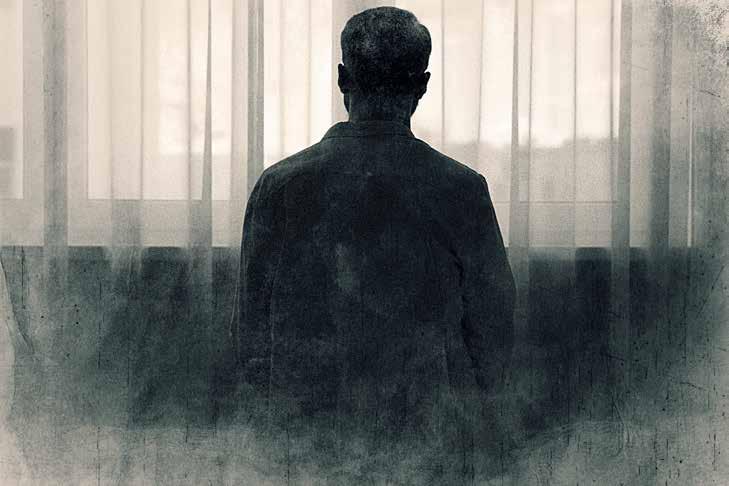
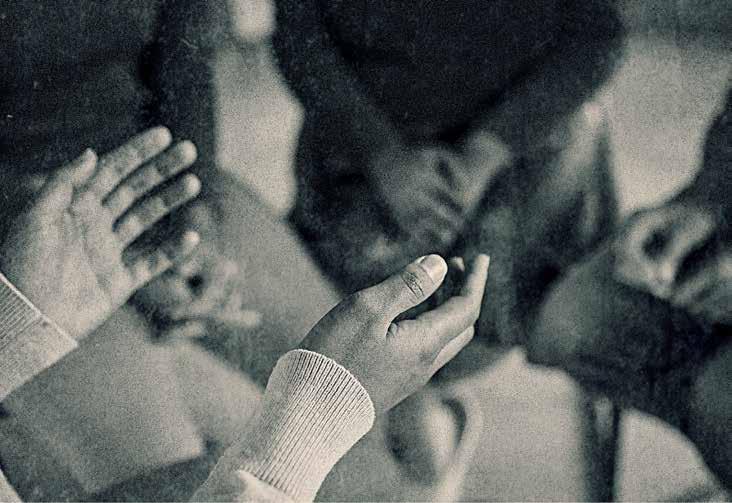
my dad had been my best friend,’ Joseph says. ‘His death gave me the excuse to fall harder into the drugs – and it was at that point that I started taking crack cocaine. It blocked out all my feelings. I didn’t care any more.’
Living on the streets, Joseph felt hopeless. Periodically, he entered drug treatment centres in search of the support he needed to beat his addiction, but he struggled to remain clean long-term.
‘I had so many opportunities but I always went back to drugs,’ he says. ‘I couldn’t understand why. I thought that I’d never be able to break my addiction and I’d probably die like this.’
All I want to do is tell people: God is real
In December 2022, Joseph was allocated a room at York House Lifehouse, home to 79 men who had all faced either homelessness, problems with addiction, or both. Joseph wondered if he had landed in drug heaven.
‘My attitude on moving in was that I might now have access to drugs without even having to go outside,’ he says. ‘It was an intense place to live. A lot of the men had mental health problems as well as addictions, so you never knew what might kick off at any moment. The staff were good, but it was tough.’
It was during his stay in the Lifehouse that Joseph felt as though he had finally hit rock bottom. In his room, he called out to God for help. Days later, he wondered if he was suffering a mental breakdown.
‘After the crack den, I’d cried out to God, but at the same time I didn’t believe in God,’ he says. ‘I thought I was going insane. But then, as I was sitting in my room, I felt a peace come over me. Every negative thought in my head disappeared. It was like two electric blankets were being placed over my shoulders slowly, from behind, and I was being given a massive hug. I felt an intense heat. I felt so much love – it was amazing.’
In his eagerness to know more about the Christian faith, Joseph started reading the Bible and listening to sermons online.
He attended the Joshua New Beginnings programme, a faith-based course for people ‘who need a second chance in life’, which was held at The Salvation Army’s Dublin City church café. In his prayers, he said sorry to God for the things he had done wrong in life. In return, he found forgiveness.
‘Giving my life to God has brought me so much freedom and hope,’ he says. ‘Over the past two years, I’ve changed massively. My relationships with my family are restored. I don’t judge people any more. I’ve moved into my own apartment.’
Today, as well as helping to run the Joshua New Beginnings programme, Joseph is training to be a pastor. Sometimes he preaches the sermons at the church he attends in Navan, Co Meath. He wants to spend the rest of his life sharing the good news of God’s love.
‘All I want to do is tell people: God is real. When you cry out to him, he will show up. When you seek him wholeheartedly, he will save you. Just try it.’
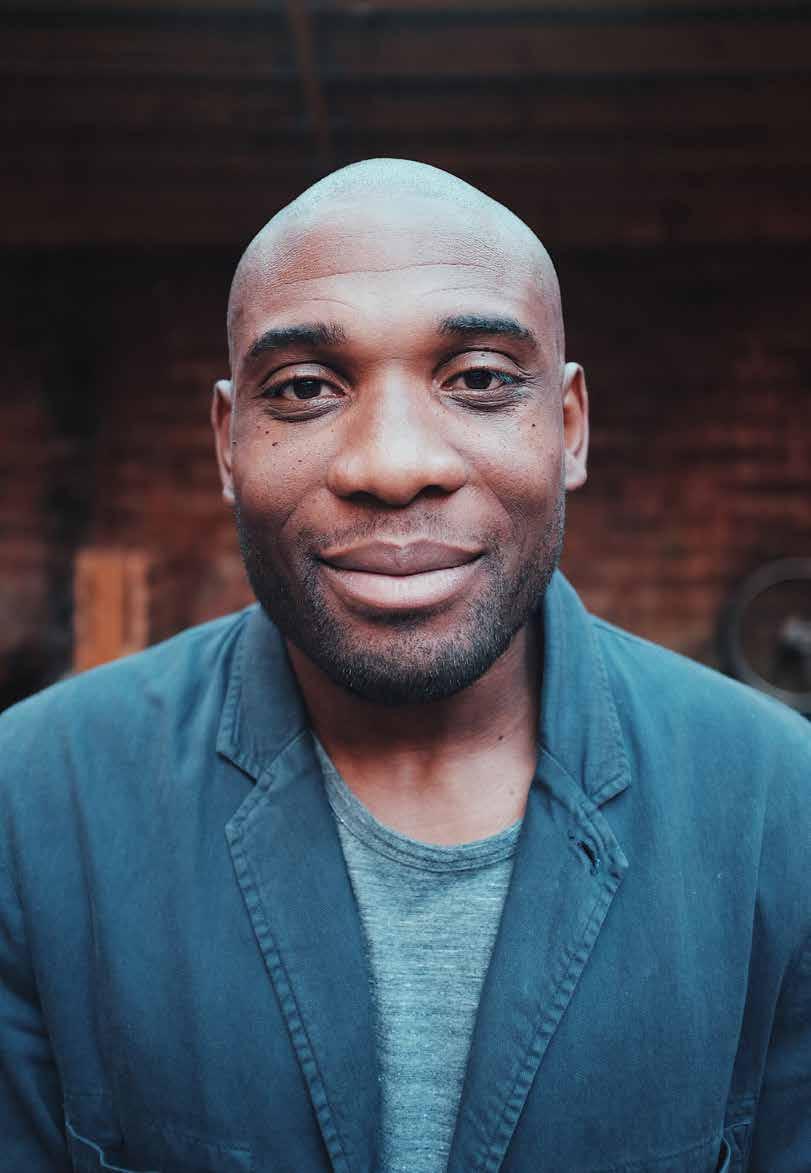
To mark Black History Month, author BEN LINDSAY reveals why he has written a book about race for young people
Interview by Emily Bright
As founder of charity Power the Fight, Ben Lindsay has engaged in youth work, training and therapeutic sessions to support young people affected by violence. As a Christian, he has had to reconcile his faith with the Church’s historical involvement with the slave trade. And now as an author, he is sparking important discussions around race.
Ben published his first book, We Need to Talk about Race, in 2019.
‘That was all about the Black experience, or at least my experience, in white majority churches,’ he explains. ‘I interviewed some amazing people for that book and realised it wasn’t just my experience.
‘But it wasn’t until the pandemic that it felt like We Need to Talk about Race was a go-to book, particularly after George Floyd’s murder.’
The killing of George Floyd – by a white US police officer who knelt on his neck for more than nine minutes in May 2020 – sparked global outrage. The #BlackLivesMatter movement, which emerged out of the tragedy, sought to highlight racial inequality and galvanise institutions everywhere to tackle prejudice and injustice.
In the UK, Black History Month – which takes place every October – is a chance to reflect on the Black leaders, activists and pioneers from the past who have shaped the present. But it’s also a time to consider how far society has still got to go in tackling racism for the future.
Five years on since George Floyd’s murder, Ben asserts that, if anything, there’s a growing opposition to antiracism initiatives.
‘I think the political landscape has changed,’ he says. ‘Anything which is
deemed “woke” or “left” now has this huge backlash. I think some people have been even more emboldened to challenge the idea of diverse communities or equity and equality and, therefore, it seems that we are actually no better off than we were five years ago.’
Ben was given pause for thought on issues of race after a conversation with his 10-year-old son.
I wanted to make sure the next generation has the right language
‘He wanted to read We Need to Talk about Race,’ remembers Ben, ‘and I said no. As a parent, your job is to make sure that you protect your child but also try to give them the right dose of reality.
‘He just came out with: “Well, you need to write a book which is for my age range.” And that’s when it hit me – about how we equip the next generation, what language we’re giving young people, and how are we helping them to flourish when it comes to difficult conversations.’
Ben has discovered that most people ‘find having conversations about race and racial justice complex’. So he wrote We Need to Talk … About Race: Christian Faith and Racial Justice – a Young Person’s Guide to ‘make sure that the next generation has the right language, where it doesn’t become awkward’.
‘But,’ he adds, ‘this isn’t just about young people. I also wrote this book for parents, for youth leaders, for teachers or anyone who engages with young people.’
The book explores the various layers of racism in society and offers readers
an opportunity to reflect on how they can take a stand against it. Ben outlines to me ways in which racism can manifest itself.
‘There are four elements,’ he explains. ‘One is institutional – the policies and practices that reinforce racist standards within a workforce or organisation, which can be quite oppressive for minoritised communities.
‘The second thing is in the structural element: multiple institutions collectively upholding racist policies and practices. For instance, the criminal justice system disproportionately impacts black and brown communities.
‘You’ve also got this interpersonal dimension – racist acts, words and microaggressions, which are carried out between individuals.
‘Then there’s this slightly deeper thing which we call internalised racism – the subtle and overt messages that reinforce negative beliefs and self-hatred in individuals.’
As a Christian, Ben has also had to reconcile his faith with a history of racism in the Church. That includes its complicit role in the slave trade and the tendency of its religious artwork to depict Jesus as white. For example, in his book, Ben explains that ‘in the early Middle Ages in Europe, darkness had strongly negative connotations, which led to artists and theologians at the time choosing to represent biblical figures such as Judas and King Herod in dark hues, while showing Jesus, in contrast, as white’.
The racial bias, which persisted throughout history, hit home for Ben’s son when they both went on a tour of Oxford
Turn to page 10 f
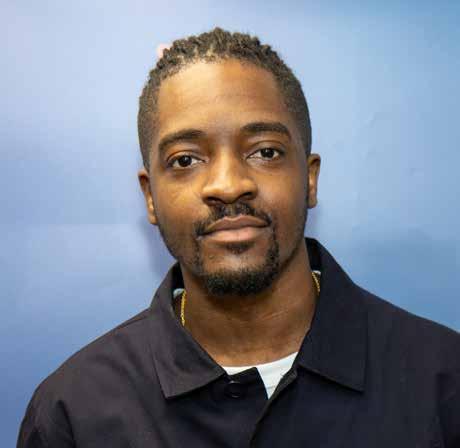

From page 9
University’s buildings.
‘My son was like: “Why is every single picture depicting somebody who is a white person?” We have to challenge that narrative. We’ve got to be really honest and, for instance, point out that Jesus was from the Middle East, or that the theologian Augustine was from Africa.’
Ben seeks to redress such historical imbalance in his book by highlighting the central role of African scholars and theologians. But he also reframes the issue of race by re-examining the Bible.
‘When I read the Bible, I see diversity, inclusion and belonging throughout,’ he says. ‘God uses all types of people from different backgrounds to do his will and glorify him. So Scripture should be able to connect with anyone, no matter who you are. People’s interpretation of the Bible is what’s messed up.’
Ben also points out that the ministry of Jesus was a model of diversity and inclusion.
‘His disciples are made up of so many different types of people – tax collectors, fishermen and some who could be seen as quite extreme characters,’ he says. ‘He engaged with women in a time when they weren’t deemed to be worthy of being engaged with. He engaged with politicians, poor people and working-class people.’
Jesus’ vision of inclusivity was also championed by the early Church, as can be seen in the Bible book the Acts of the Apostles.
‘In Acts 10,’ says Ben, ‘we see God’s desire to present the gospel not just to the Jewish community but to non-Jewish people as well.
‘There’s a beautiful story where Peter is given a dream, which challenges his prejudice, and he’s called to go to Cornelius’s house. It’s the first time you get to see the non-Jewish community engage with Jesus Christ, and that has big implications for us all.
‘And in the letters of the New Testament, you get to see the churches that Paul is involved in, and they’re all from different parts of the world. That’s why I don’t believe that there’s one Christian culture, because the Bible doesn’t promote that.’
While Ben is a firm believer in inclusivity and equality, he also believes that God celebrates diversity and difference. As a result, he finds the ‘colour-blind’ approach promoted by some parts of the Church as problematic.
‘The Bible says that God shows no partiality or favouritism,’ he explains. ‘But if you look at something like Pentecost, there was a whole diverse group of people who all came together and experienced the Holy Spirit. It was a celebration of diversity.
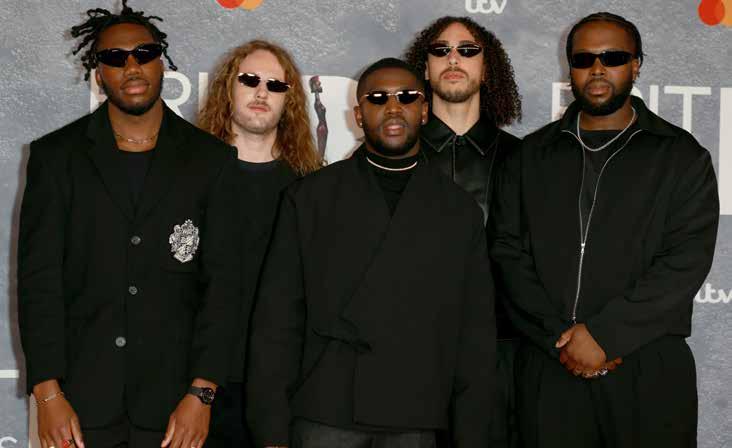
Femi Koleoso (centre), from the band Ezra Collective, says in the book that his worth comes not from ‘race, where I’m from, my talents or anything, but what Jesus Christ says about me’
‘I’m not saying that we should be defined by the colour of our skin. Rather, we can all love and respect one another while still acknowledging that we come from different backgrounds. Things like that can be celebrated.’
Given how complex and important the subject of race is, it can sometimes feel daunting to know where to start in engaging with it. Ben suggests that simply listening to people’s experiences is a good place to begin.
‘I’d say: Go and talk to friends and black and brown members of your community or your church and see whether anything that I’m saying resonates,’ he says. ‘We’re not all the same. Some people will be like: “That’s not my experience.” But some people will say: “That is something actually.”’
Ben models how to have healthy conversations about race in his book. The chapters are interspersed with personal stories by his friends and public figures, detailing their own experiences.
‘I never wanted the book to feature just my voice,’ he says. ‘There’s a lot of my friends who share their own experiences – experiences I’ve never had. And it’s important to curate space for other people’s narratives, because I wanted my
children to connect to people they know.’
So the book includes contributions from England footballer Eberechi Eze and musicians Femi Koleoso – from jazz group Ezra Collective – and Guvna B.
Ben adds that a wealth of material on the subject of race is now available for people to engage with. Everyone can join the conversation.
Church should be a safe place for everyone
‘Since George Floyd, there has been a flurry of books, resources and podcasts. Just type “anti-racism” into Google, and you will find stuff.’
And he feels strongly that churches should play a role.
‘Church should be a safe place for everyone,’ he says. ‘People’s slights and microaggressions can play out into bigger things, and, therefore, I’m encouraging all churches to take racism as a safeguarding issue. And I think the more we do that, the more comfortable minoritised communities will feel in those spaces.’
He acknowledges that for many people, church hasn’t felt like a safe place.
‘A lot of people out there have been hurt by Church,’ he says. ‘Jesus is perfect, but people are imperfect. There is no perfect church.
‘I would encourage young people who have been hurt to get support, to talk to someone they trust. They can talk to their pastors, but then there are some things you just need therapy for. I’d say: get someone who is psychologically trained, who understands the pain of what you’re going through, and who is a culturally appropriate and sensitive person.’
Ben hopes that, whatever the context, his book ‘gives young people language, confidence and boldness’.
He says: ‘I want them to be bold to speak about any forms of identity without thinking that they’ll be shut down or that people are not going to understand. I want them to thrive.’

l We Need to Talk … about Race: Christian Faith and Racial Justice – a Young Person’s Guide is published by SPCK
Your prayers are requested for Laura, that she will be helped to keep on believing.
The War Cry invites readers to send in requests for prayer, including the first names of individuals and details of their circumstances, for publication. Send your Prayerlink requests to warcry@salvationarmy.org.uk or to War Cry, 1 Champion Park, London SE5 8FJ. Mark your correspondence ‘Confidential’.
a Christian
There is no set formula to becoming a Christian, but many people have found saying this prayer to be a helpful first step to a relationship with God
Zechariah began prophesying in about 520BC. He is addressing the flattened Jerusalem. Haggai, another biblical prophet, also spoke about the rebuilding of the Temple. But, whereas Haggai’s call for the Temple’s rebuilding was practical, Zechariah’s is poetic.
Through visions of a man among myrtle trees (1:7–17), of a man with a measuring line (chapter 2) and of four chariots (6:1–8), God outlines his intention to restore Israel and to make Jerusalem his dwelling place again.
Other visions of four horns and four craftsmen (1:18–21), of a flying scroll and of a woman in a basket (chapter 5) announce divine judgement on nations who oppressed Israel and on individual sin.
Lord Jesus Christ,
I know that I have done things in my life that are wrong and I’m sorry.
Thank you that I can ask you for forgiveness because of the sacrifice you made when you died on the cross.
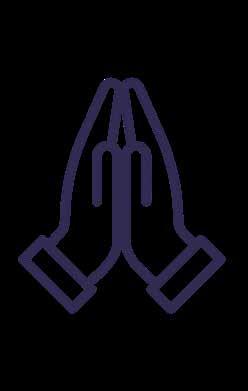
Please forgive me and help me to live a better life in the future as I learn how to love you and follow your way of living.
Thank you, Lord Jesus.

God clearly states his intentions: ‘I will return to Zion and dwell in Jerusalem’ (8:3 New International Version). This renewed city of God will be a place where people live long enough to need a walking stick and where children feel safe enough to play on the streets (8:4 and 5). It will be a place of repatriation (8:8), a fertile place (8:12) and a place where envious foreigners want to live (8:23).
The later chapters outline some of the events that will occur before the ultimate fulfilment of these visions. A king is to come (9:9). God’s scattered people will gather in Israel (chapter 10). There will be a payment of 30 pieces of silver (11:12). The nation will mourn for ‘the one they have pierced’ (12:10). A shepherd will be struck and forsaken (13:7).
A climactic ‘day of the Lord’ will come (14:1). Nations will gather to destroy Jerusalem. The Lord will stand on the Mount of Olives (14:4). ‘Living water’ will flow from the city (14:8). Enemies defeated, ‘the Lord will be king over the whole Earth’ (14:9).
Christians believe that such a vision has been partially fulfilled in the flesh-and-blood appearance of Jesus Christ. They also believe that it will be completely fulfilled through his second coming at the end of time.

If you’ve prayed this prayer, scan the QR code or contact us using the coupon on this page
























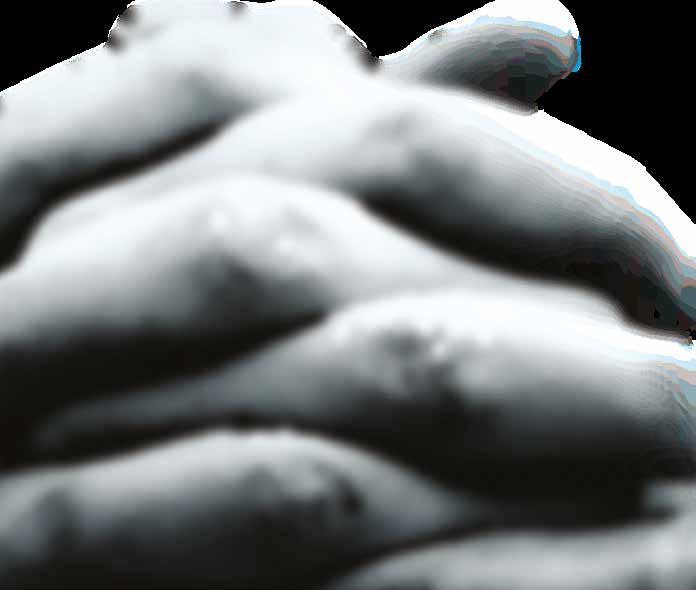








































To receive basic reading about Christianity and information about The Salvation Army, complete this coupon and send it to
War Cry 1 Champion Park London SE5 8FJ

















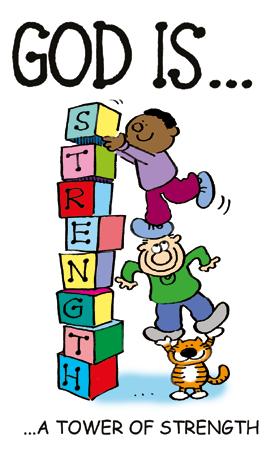
preview: Trigger Point ITV1 and ITVX
By Claire Brine
Acall comes in. There’s a cab, parked on a piece of London wasteland. Police say that it contains a suspected explosive device. Clearly this is a case for the bomb disposal unit in Trigger Point, which begins its new series later this month.
As explosives officer Lana (Vicky McClure) approaches the vehicle, she can see that a man is locked inside. He looks terrified. But Lana cannot let him out until she knows that the cab has been made safe.
While she’s assessing the scene, she makes a startling discovery. ‘There is a chemical weapon in the cab,’ she reports back to police.
Later, it becomes clear that the bomb threat was just the start of a sinister vendetta. A serial killer is targeting individuals and demanding revenge. But who is the brains behind these deadly devices? And can Lana and her team put a stop to them without losing their own lives?
‘I take risks,’ says Lana, matter-of-factly, to a colleague. ‘That’s my job.’
Despite her ‘get on with it’ attitude, Lana knows that detonating bombs for a living comes at a cost. In previous series, her work has pushed her to breaking point.
Perhaps we know what that feels like. We too can face stress, worry and sadness in our everyday life and not know how to cope.
When we feel overwhelmed, there are rarely any easy solutions. But those who put their faith in Jesus are promised peace and strength to face whatever lies ahead.
Jesus said to his followers: ‘Come to me, all of you who are tired and have heavy loads, and I will give you rest. Accept my teachings and learn from me… The burden that I ask you to accept is easy; the load I give you to carry is light’ (Matthew 11:28–30 New Century Version).
Which actress recently published The Little Book of Miriam?
What does the letter ‘K’ in the term ‘K-pop’ stand for?
What is the name of the video game in which players must sort falling tetromino shapes into lines?
In which film released last month do Margot Robbie and Colin Farrell relive moments from their pasts?
What is the popular metric name for a 3.1-mile run?
A trip to which set of islands led Charles Darwin to develop his theory of evolution? 1 2 3 4 5 6
When we talk to Jesus about our struggles, we can find comfort in the fact that we are not facing them alone. Jesus listens. Jesus cares. Jesus brings hope by inviting us to experience God’s life-changing love. Trusting him may feel like a risk – but it’s a step we won’t live to regret.
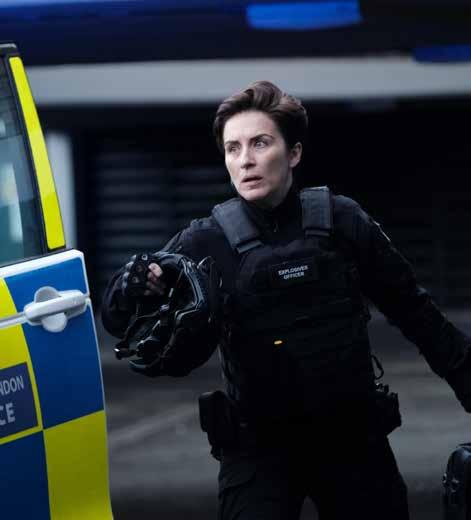
Lana

ACROSS
1. Little (5)
4. Eros (5)
8. Exclamation of disgust (3)
9. Basis for calculation (5)
10. Thrown (5)
11. Prohibit (3)
12. Main artery (5)
13. Article of dress (7)
16. Flask (6)
19. Wily (6)
23. Staying power (7)
26. Wither (5)
28. Guided (3)
29. Facial hair (5)
30. Entrance room (5)
31. Reverence (3)
32. Blended (5)
33. Same again (5)
2. Shrine (5)
3. Back pain (7)
4. Alter (6)
5. Puzzling problem (5)
6. Drench (5)
7. Combat (5)

9. Companion of Snow White (5)

14. Encountered (3)
15. Snare (3)
17. Allow (3)
18. Jewel (3)
20. Burdened (7) 21. Void (5)
22. Story song (6)
23. Sword (5)
24. Scare (5)
25. Forefinger (5)
27. Planet’s curved path (5)
Each solution starts on the coloured cell and reads clockwise round the number


5. Women’s formal
6. Large wasp


INGREDIENTS
1 bulb garlic
1tbsp vegetable oil
300g mayonnaise
650g sweet potatoes, peeled and chopped
750g potatoes, chopped into small chunks
50g flaked almonds
300g red cabbage, finely chopped
25g parsley
60g mixed leaf salad
100g sultanas
Salt and pepper, to taste

METHOD
Preheat the oven to 180C/Gas Mark 4.



Wrap the garlic bulb in foil with half the oil and put in the oven for 30-45 minutes. Remove from the oven and leave to cool, before unwrapping the foil. Chop the top off the bulb and squeeze the garlic into a bowl.

Add the mayonnaise to the garlic and mix until smooth.
Place the sweet potatoes on a lined baking sheet, toss with the remaining oil and cook in the oven for 15 minutes.
Boil the chopped potatoes until tender. Add to the tray of sweet potatoes, stir and return to the oven. Roast until the potatoes are lightly coloured, then remove from the oven and leave to cool.
Place the almonds on a tray and toast in the oven until lightly coloured.
Put all the remaining ingredients into the bowl with the mayonnaise. Mix well and season to taste, before serving.
30ml oil
1kg boneless chicken thigh, diced
400g onions, roughly chopped
400g parsnips, cut into chunks
500g carrots, peeled and roughly chopped
500g potatoes, peeled and roughly chopped
20g chicken bouillon
40g wholegrain mustard
20g English mustard
30g clear honey
5g fresh thyme
10g fresh parsley, chopped
100g green cabbage, finely shredded and blanched
Salt and pepper
Preheat the oven to 180C/Gas Mark 4.
Heat half the oil in a large pan. Brown the chicken until golden, then place in a large casserole dish. Set aside.
Heat the remaining oil in the pan and cook the onions for 10 minutes, until softened, then add them to the casserole dish, along with the parsnips, carrots and potatoes.
Dissolve the chicken bouillon in boiling water in a bowl and stir in the wholegrain and English mustards and honey, then pour the mixture over the chicken and vegetables.
Scatter the thyme and parsley over the meat and vegetables, then cover with a lid and cook in the oven for 45 minutes, until the vegetables are soft.
Remove the dish from the oven, then add the cabbage and stir well. Adjust the seasoning, to serve.
